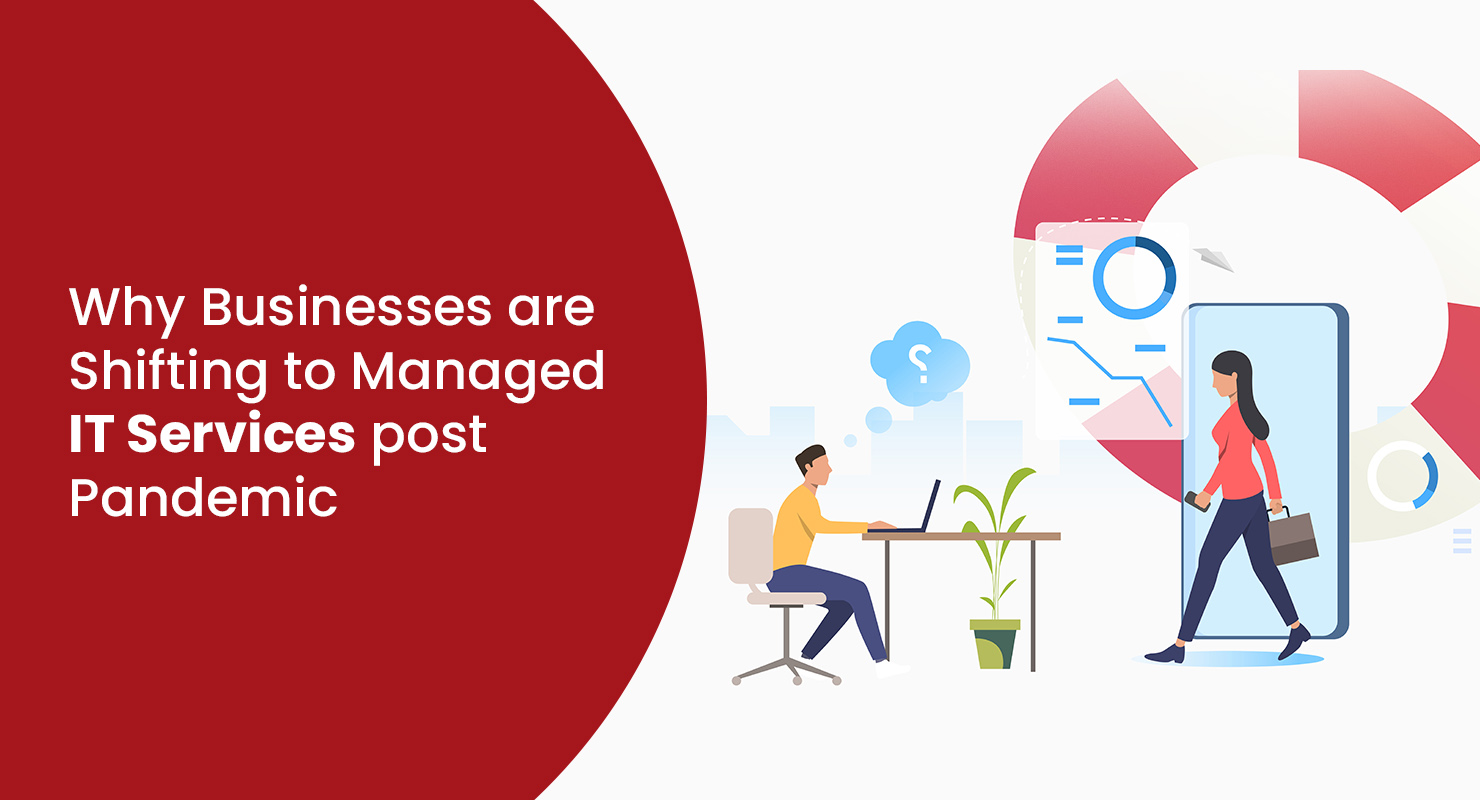After the pandemic, companies throughout different industries have been compelled to adapt to a new reality. To ensure business continuity, minimize operational disruptions, and enhance productivity, many organizations have started shifting to managed IT services. This strategic move has proven to be a game-changer, allowing businesses to
leverage the expertise and resources of dedicated IT professionals. In this blog, we will explore the reasons behind the increased adoption of managed IT services and how it has become an essential component of modern-day business operations.
Ensuring Remote Workforce Efficiency
The pandemic has accelerated the shift towards remote jobs, with firms transitioning their workers to work-from-home setups. This sudden change has created a need for robust and reliable IT infrastructure to support remote connectivity, data security, and collaboration tools. Managed IT services providers offer specialized solutions to address these needs, ensuring that employees can work efficiently and productively from anywhere. With proactive monitoring, troubleshooting, and support, managed IT services enable companies to maintain seamless operations despite the geographical limitations imposed by the pandemic.
Strengthening Cybersecurity Measures
The pandemic has given rise to a surge in cyber threats, as malicious actors exploit vulnerabilities arising from the rapid adoption of remote work technologies. As services significantly count on digital platforms, protecting delicate information and keeping details secure has become extremely important. Managed IT services include
comprehensive cybersecurity measures that safeguard businesses from potential breaches, ransomware attacks, and other security risks. This positive approach to cybersecurity ensures that organizations can continue their procedures without jeopardizing data stability or client count.
Cost Optimization and Scalability
In the face of economic uncertainties brought about by the pandemic, cost optimization has become a critical concern for businesses. Managed IT services offer an economical alternative to keeping an internal IT division. By outsourcing their IT needs, services can minimize the above expenses associated with hiring and training IT professionals, purchasing hardware and software, as well as taking care of facilities. Moreover, took care of provider offer scalability, permitting companies to scale up or down their IT resources based on their immediate needs. This versatility enables businesses to adapt promptly to changing market problems without incurring unneeded expenditures.
Access to Expertise and Advanced Technology
Managed IT services offer businesses access to a pool of very proficient IT specialists with diverse know-how. These experts stay upgraded on the latest sector patterns, emerging innovations, as well as ideal methods. By partnering with a handled company, services can benefit from this collective database and acquire a competitive advantage. Additionally, managed IT service providers have the resources to invest in advanced technologies, such as AI-driven automation, cloud computing, and virtualization, which can significantly enhance productivity, streamline operations, and drive innovation.
Proactive Monitoring and Support
Among the essential advantages of managed IT services is the 24/7 positive monitoring and support they supply. Managed provider remotely monitors networks, systems, as well as applications to recognize and attend to possible problems prior to the rise right into major troubles. This aggressive approach assists to decrease downtime, increasing system uptime, as well as make certain undisturbed operations. In the event of technical issues, businesses can rely on the expertise of managed service providers to promptly resolve the problems, often within a guaranteed timeframe. This level of support provides peace of mind to businesses, allowing them to focus on their core competencies.
Conclusion
The ongoing pandemic has forced businesses to rethink their IT strategies to adapt to the rapidly changing landscape. Managed IT services have emerged as a lifeline for organizations, enabling them to navigate the challenges posed by remote work, cybersecurity threats, and cost optimization. By outsourcing their IT needs to specialized service providers like, businesses gain access to expertise, advanced technologies, and round-the-clock support. As we move forward, it is evident that managed IT services will continue to be an indispensable component of business operations, ensuring resilience, efficiency, and growth in the post-pandemic era.


